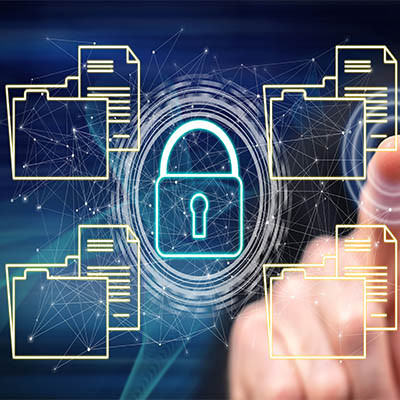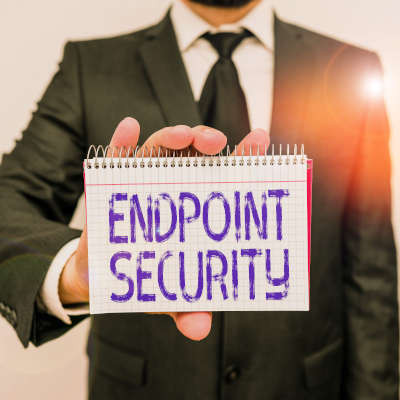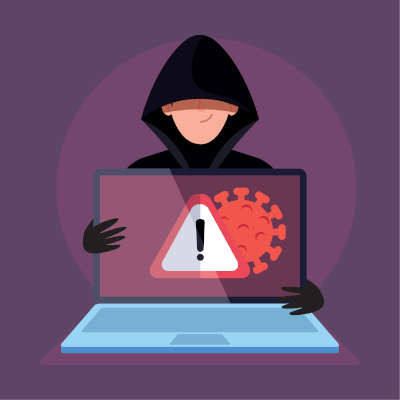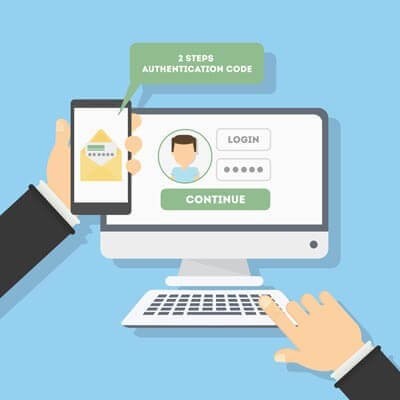People look at their work differently, just as they view their lives differently. The many different perspectives of your staff brings a bit of variance of how they view data security. This isn’t so good for your business as you need to trust them to prioritize the security of your data and infrastructure. Let’s take a look at some of the best practices that you should be training your staff in, which will allow them to protect your data better, and theirs.
BEI Blog
Conferencing has played a crucial role for businesses, and never more than in the past year. Unfortunately, this has presented the opportunity for trolls to join in these remote collaboration efforts, interrupting them with inflammatory and vulgar content. Labelled “Zoombombing”, these attacks have led to the implementation of numerous privacy protections and countermeasures… but the question remains: how effectively do these protections defend a business’ efforts?
As a study has revealed, not effectively enough.
For the better part of four decades, Apple has bragged that not only are their devices more secure than PCs, hackers don’t bother building threats specifically for their operating systems because their security is so superior. For this reason, Apple has routinely refused advances from law enforcement to share workarounds so that police can get into phones. Apple’s rationale for this constant refusal is that it would undermine their ability to keep the most secure personal computing devices, secure. Federal law enforcement officials went ahead and developed their own workaround and the findings may surprise many Apple aficionados. Let’s take a look:
If I were to ask you what you believed was the biggest potential threat to your business’ future, what would your answer be? The correct answer for most is the risk that an employee might let in a threat—intentionally or not. Let’s investigate how this might happen, and what you need to do to stop it.
During this time of year, many people like to sit back and reminisce upon favorite stories from the past. We figured we’d join in the fun by reimagining what many argue to be a holiday classic: Die Hard.
Let’s take a few moments to consider how the story might play out if the action were to take place today…
With remote work remaining a popular option embraced by many businesses nowadays, it is more important than ever that security is prioritized amongst the employees now operating outside of the office. One facet of doing so is to implement a virtual private network, or a VPN. Let’s go over what a VPN is, and how it works to protect your business’ data.
We will often keep an eye on current events to find practical examples to use as evidence in support of our recommended best practices, but a relatively recent Spotify hack has given us a special opportunity. We now have the opportunity to use this one story to reinforce not one, but two such practices. Let’s dive in, shall we?
We’re always talking about the importance of keeping your software up to date. It is the very best way to avoid the vulnerabilities that can cause data breaches. When the Department of Homeland Security tells organizations to patch their software, however, it is urgent. This is exactly what has happened recently regarding the world’s most utilized Internet browser, Google Chrome.
It was pretty evident from the start of the COVID-19 pandemic that many businesses were not prepared to pivot their operations offsite. Many of these company’s leaders spent the past several years convinced that allowing people to work remotely would sap productivity in unsustainable ways. Cybercriminals have taken advantage of many organizations since then. Today, we will talk about what needs to be done to secure your endpoints when supporting a remote workforce.
With so many people working from home right now, businesses have managed to keep their operations going somewhat successfully by using the remote solutions that are available today. While it is fortunate that today’s technology enables businesses to do so, the importance of cybersecurity cannot be understated as remote work is implemented.
We haven’t exactly been shy about sharing our recommendation that a ransomware demand should never be met with payment, but there is now an even more impactful reason not to. This deterrent comes courtesy of the United States Treasury Department, which has released a statement informing businesses of potential fines as retribution for doing so.
With just shy of a month before the 2020 United States Election, there has been quite a bit of concern over the idea that external interests may try to sway the results—and it seems for good reason. Only recently, Microsoft interrupted a massive coordinated hacking plot that could have altered the very infrastructure needed to support a fair election. Let’s examine this plot, and what Microsoft did, in some more detail.
I want you to step out of your role as a business owner for a moment and see yourself once again as the average consumer. How concerned are you that so many businesses have collected and are now storing your personal data, and that you have no control over its privacy? If you feel at all uneasy, you’re not alone… 87 percent of Americans feel that data privacy is a human right in these modern times.
If asked to list its most valuable assets, every modern business currently in existence should include its data on that list. This is part of the reason that data security should be treated as a priority. We know—this isn’t exactly a small ask, so to help, we’ve put together a few tips to get you started off on the right foot. If you’re already working on your data security preparedness, consider this a refresher.
Did you know that over 80 percent, eight-zero, of cyberattacks are the result of stolen access credentials? It’s no wonder that the username/password combination that we’re all used to is being actively phased out by many tech companies—including Microsoft—in favor of more secure, passwordless authentication measures.
Despite what detractors say, regulations are in place for good reason. They typically protect individuals from organizational malfeasance. Many of these regulations are actual laws passed by a governing body and cover the entire spectrum of the issue, not just the data involved. The ones that have data protection regulations written into them mostly deal with the handling and protection of sensitive information. For organizations that work in industries covered by these regulations there are very visible costs that go into compliance. Today, we look at the costs incurred by these organizations as a result of these regulations, and how to ascertain how they affect your business.
The password isn’t nearly as secure as it used to be. Hackers have begun to take advantage of extremely powerful solutions designed to brute force their way into accounts by using software to rapidly guessing thousands of passwords per second, making it extraordinarily difficult to prepare yourself for them.
What’s the best way to guarantee that passwords aren’t going to be the downfall of your company? A great start is by taking a close look at password best practices and two-factor authentication.




















